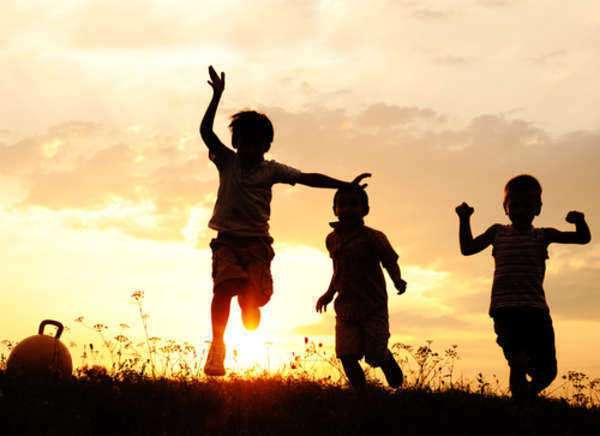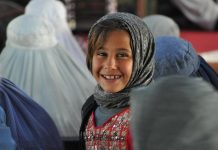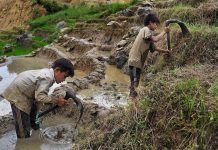This article is written by Upasana Dash from Madhusudan Law College, Odisha. This is an exhaustive article which deals with the rights of children of sex workers. In this article, we will discuss the issues the children of sex workers are facing, what are the legal and moral rights for them precisely.
Table of Contents
Introduction
In Indian society, selling a body is immoral ignoring the aspect of the right to own a body. It is clearly unknown to us from what time prostitution is being a business. Society discriminates against them though it is prerogative to them. As per the analysis report of 2007, 800, 000 sex workers continue prostitution for their livelihood in some metropolitan cities like Delhi, Sonagachi Kolkata (the largest red-light district in Asia). Most of the sex workers get trafficked and exploited.
The social stigma and hierarchy ignore gender equality under Article-14 and the dignity of women who choose this trend for their bread and butter. We frame their profession as a derogatory standard of living. Societal blemishes ultimately lead them to the disclaimer of essential basic rights i.e the right to education for their children, proper healthcare, sanitization, shelter, social security, and freedom from psychological torture and physical abuse.
Furthermore, this mistreatment of society affects a lot of their children; their kids get discriminated against and kept aside isolated. They are abused. Do these sex workers and their children can access any kind of rights from the legal system like any other workers?
Challenges faced by the children
Prostitution has been such a profession in which person who obtain this occupation, generally they are not able to take care of their family by any other means. Children of sex workers or brought to the red light are abused and mistreated in their own place. The environment of red-light districts is definitely not suitable for the welfare of a child.
According to the 2014 Surgeon General’s Report, nearly 9 out of 10 boys have seen smoking substances like tobacco, and cigarettes before the age of 18. They do not get proper shelter to live in. They live in slums of red-light districts. Apart from education, we can say that “roti”, “kapada”, and “makan” (food, clothes, and shelter) are the basic requirements for them. Coming to the sanitization and hygienic condition, then it is very poor in their living places that are in the shanty area of the city. Proper health care and medicines are necessary to them.
This is a very pathetic scenario where girl child of sex workers are vulnerably treated in this business. Often clients of sex workers touch and molest their small daughters and sometimes abuse them verbally. It is a shame to us that immuned to hear these kinds of issues like sexual abuse. Most of us have experienced sexual abuse in our friend circle, siblings, or in neighborhoods. Imagine the future of a girl child of a sex worker, her mother must had been pressurized and forced their daughter to prostitution due to poverty, economic distress, and psychological reasons which will lead such small aged children for the greed of sexual relationships, and ultimately despair.
Their minds get framed by the circumstances and environment. They are usually neglected and ignored in society. The only option their parents have is to get married at an early immature age.
Access to education and key impediments
To break the ruthless condition and improve their economic status, it will be a helpful step to provide free education and skill-building exercises to the children of sex workers. Undoubtedly, education is the key to break the chain typical mindset of society towards sex workers. Educated children may help their family or mother to get rid of such derogatory occupation. Proper culture and guidance can build a healthy thought process.
Education to their children ensures that those kids going to school regularly can be tough. Chances of low attendance and drop out students may arise in the slum areas. Besides these children of sex workers get discriminated against and backlisted for their mother’s job. In educational institutions, teachers also criticize those children. In the age of women empowerment, children sex workers face ill-treatment. To give protection and care to those kids, the National Commission for Protection of Child Rights (NCPCR) assumed some guidelines Judiciary empowered that separate schools and hostels should provide for them where they will not get isolated and face any kind of discrimination.
In the case of Gaurav Jain v Union of India, AIR 1997 SCC 114, a PIL was filed in the matter of rehabilitation of children of sex workers. The judgment was not in favor of the petitioner. It was held that providing separate schools and hostels can not be held in favor of those children. But they can not be kept aside in an unhealthy atmosphere where there is a chance of girl children getting harassed and abused. And it was decided that it is the obligation of the State and all the other voluntary NGOs to help in the rehabilitation of prostitutes and their children to live a life with dignity, provide them education and economical support not to get involved in prostitution again.
In the case of Vishal Jeet v Union of India and Ors, AIR 1992, though in the judgment of the case, there is no consideration for the rehabilitation of the children of the sex workers the court directed to establish a committee to get a proper report about their issues.
Legal support
Provisions of law are not so specified to date to take care of children of sex worker under Article-21A of the Constitution, children below 14 age will get compulsory education. The Directive Principles of State Policy described under Article-39(e) that the government should protect children against entering professions that are unsuited to their age or strength for financial need. Under Article-39(f) children have the right to “equal opportunities and facilities to develop in a healthy manner in conditions of freedom and dignity, and guaranteed protection of childhood and youth against implication and against moral and material abandonment.”
United Nations Convention on the Rights of Child (1989) confirms, not to discriminate, right to life survival, development of the child, right of children to express their thoughts. The duty of the government is not only to provide them education, rather to eradicate poverty and discrimination in society, rehabilitating sex workers. NGOs like Kat-Katha and Kolkata’s APNE AAP WOMEN WORLDWIDE, which promote students to read and write, teach some basic subjects such as Hindi, English, Literature, and cultural activities like dance, song, and drama, etc.
The National Commission of Protection of Child Rights (NCPCR) has pointed out some major highlights from the survey report:
- There is a chance of joining the same profession as their parents,
- Those children hesitate to interact with outsiders and other communities,
- They need quality education and rehabilitation else they will adopt their family occupation,
- Children from other groups discriminate against the children of sex workers.
HIV awareness should be promoted by these NGOs. The National Aids Control Organization (NACO) has to pay attention to the children.
Juvenile Justice Act, 1986
Juvenile Justice Act, 1986, which talks about children who need care and protection. This Act was further amended in 2000 and the “child needs care and protection” was added. This Act is concerned about children specifically Juvenile Justice Act based on two bodies i.e Juvenile Justice Board and Child Welfare Committee. Section-2(14) describes the provisions of “child need care and protection”. Children of sex workers get exploited for sexual abuse is an illegal act. These issues certainly violate the human rights of a child.
Those children get raised in such surroundings without proper guidance and upbringing, there is a probability of criminal behavior in their mindset. So the purpose of the Act is to synthesize the laws relating to children through proper care, protection, development, treatment, and social reintegration.
Under Section-30 of the Act, children should be provided shelter, a place for safety far from the hostile environment they should live in observation. Under Section-31, abandoned children should be handed over to public servants, Child Welfare Police Officers, or social workers. Section-35 speaks about, a prostitute can give her child to the welfare committee board for his care and protection if she is in the middle of social stigma. Section-39 imposes certain rules to rehabilitate those children under the guidance of the welfare committee.
Struggles to survive in COVID-19
COVID-19 has impacted every section of society, whether it is poor or rich, majority or minority sections. It has affected migrants. As per the report of the National Aids Control Organization (NACO), the number of sex workers in India is about 6,37,500, and 5 lakh customers visit the Red Light area regularly. Due to COVID-19, they are facing several problems.
Maintaining social distance in the Red Light area is quite difficult because brothels stay in slum areas of cities like Delhi, Pune (Budhwar Peth), Allahabad (Meergunj), Muzaffarpur (Chaturbhujsthan), Nagpur (Itwari), Varanasi (Shivdaspur), Mumbai (Kamathipura), and Kolkata. Delhi’s GB road has more than 3,000 sex workers lived in 80 small brothels. Kolkata’s Sonagachi has 8,000-10,000 sex workers which is regarded as Asia’s largest Red Light area. Hygiene is a big problem, they have limited access to water, 20 people use the same bathroom.
A 26 year- old girl has confessed that she had run away from her home to become an actress but unfortunately adopted prostitution for her survival. Since the Corona crisis has taken place in India, she is struggling for food because no customer is going to her.
No social acceptance for sexual workers. Due to social stigma, many sex workers can not accept their occupation publicly. Some sex workers have travelled to towns from their village. Now because of strict communication guidelines, they cannot return to their home. During the lockdown, 60 percent of sex workers in Delhi returned to their home states.
The vital problem is, sex workers are 13 times more vulnerable to being affected by HIV. they cannot negotiate with their customers to use protection, and due to financial instability, they are unable to access proper medication and health facilities. Besides HIV, they suffer from blood pressure, chronic sugar, diabetics; not only physical health issues, but they also anticipate a spark spike of anxiety, depression, and suicide.
Apart from all these issues. The government is denying that there is no prostitution in the country. So the government is supporting sex workers, NGOs and civil societies to provide them voluntary help, food, and antiretroviral therapy, medications for treating HIV/Aids.
This problem is triumphed in India and at the international level as well. In some countries, they have increased policing, raid, arrest the sex workers, and threatened deportation of migrant sex workers. In the US, SWOP-Tucson (the Sex Workers Outreach Project), this scheme requires proof of bad economical condition due to COVID-19. Prostitution is criminalized in the USA, so it’s not possible to provide proof to the authority to get the advantages of the scheme. In Netherland, prostitution has been legalized and in control also. Even operating brothel is also legalized, but it has been ordered that the sex workers cannot work before the month of September.
Urmila Basu, the founder of the NGO “Newlight” in Kolkata, “sex workers do not feature anywhere, as a marginalized grown. The government does not want to accept that there is prostitution in the country. It is the elephant in the room.”
According to the report of the Yale School of Medicine, US, India can avoid 72% of COVID-19 cases by closing the Red light areas. The scientists had said that Japan did not close the Red light areas, in consequence, that they noticed an explosion by which local hospitals were overwhelmed.
Conclusion
Keeping eye on all the issues and measures, the decision of the government not to open the brothels is right but meanwhile, the government should provide them basic requirements, proper education to their children, hygiene, medications and health facilities, the scope for rehabilitation, and financial support to their families along with NGOs and other civil societies.
References
LawSikho has created a telegram group for exchanging legal knowledge, referrals and various opportunities. You can click on this link and join:
 Serato DJ Crack 2025Serato DJ PRO Crack
Serato DJ Crack 2025Serato DJ PRO Crack











 Allow notifications
Allow notifications



Of course it is a thing which needs to be thought of, but generally it happens with the Sex workers that they have a inferiority complex, they think that what they are doing is wrong and as their children are not legitimate, they think of involving them in same business they do. So some thing will change if only their mindsets change and they come to know about their rights and duties leaving the stigmas they have about themselves and I personally don’t think this can be done in a short span. Anyways, thank-you, you highlighted an issue which may be very few people think of.